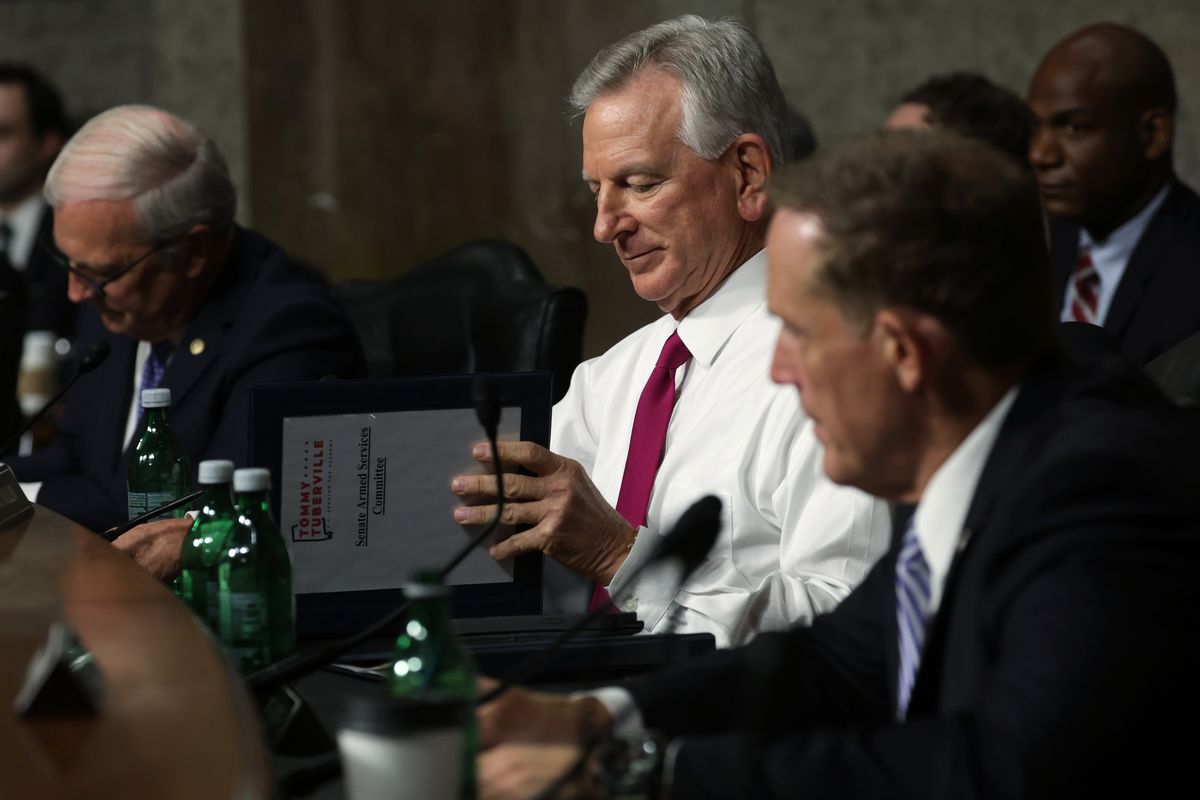Tuberville drops blockade of most military promotions

WASHINGTON – Sen. Tommy Tuberville on Tuesday lifted his blockade of nearly all the military promotions he had delayed for almost a year in protest of a Pentagon policy ensuring abortion access for service members, saying he would continue to hold up only the most senior generals.
Hours after Tuberville, R-Ala., said he would allow the promotions of about 440 service members, the Senate confirmed all of them in one fell swoop, by a single voice vote.
“Thank God,” Sen. Chuck Schumer of New York, the majority leader, said after he pushed the promotions through. “These military officers will now get the promotions they so rightfully earned.”
The retreat represented a stark reversal for Tuberville, who for 10 months had steadfastly defended his move to stall senior military promotions over a new Pentagon policy that offers time off and travel reimbursement to service members seeking abortions or fertility care.
With his blockade, the first-term senator had single-handedly disrupted the Pentagon’s ability to fill its top ranks, leaving hundreds of promotions in limbo. Other officials in senior positions were left to operate on an “acting” basis, unable to hire people to staff their new positions or to move into the quarters that come with the job.
“In the end, this was all pointless,” President Joe Biden said in a statement. “Sen. Tuberville, and the Republicans who stood with him, needlessly hurt hundreds of service members and military families and threatened our national security – all to push a partisan agenda. I hope no one forgets what he did.”
The reversal came amid mounting pressure on Tuberville from both Republicans and Democrats on Capitol Hill.
Tuberville said Tuesday that he had decided to lift the blockade after senators hatched a plan to temporarily go around the chamber’s rules to allow confirmation of almost all military nominees as a bloc. That would have been a major break with tradition and a step many senators in both parties were reluctant to take.
“It’s been a long fight,” Tuberville told reporters. “We fought hard. We did the right thing for the unborn and for our military, fighting back against executive overreach.”
Tuberville said he would abandon his holds on “everybody but the 10 or 11 four-stars,” referring to four-star generals. “Those will continue.”
Tuberville’s decision was met with relief by both Republicans and Democrats who had been confounded by his strategy. Sen. Jack Reed, D-R.I., chair of the Armed Services Committee, said Tuberville’s decision was “long overdue.”
The blockade “has caused extreme difficulties for the military, but they will cope with it,” Reed said. “Our mission now is to get all of those officers confirmed – and never, ever revert back to such behavior.”
“Military officers are not political tokens,” he continued. “They can’t be moved around the playing board to get something else you want.”
At the Pentagon, officials welcomed the news but urged that Tuberville to drop his holds on senior military promotions as well.
“As evidenced by everything that’s going on in the world right now, we have a very important mission in terms of defending this nation, and anytime you add a level of uncertainty into the chain of command, it creates an unnecessary friction,” said Brig. Gen. Patrick Ryder, the Pentagon press secretary.
“We’ll continue to stay engaged with Sen. Tuberville in the Senate directly to urge that all the holds on all our general flag officer nominations be lifted,” he added.
Tuberville’s hold meant that to promote military officials, the Senate was forced to go through individual nominations one by one, holding a series of votes on each to circumvent his objections.
Schumer did so for a handful of senior officials, including the chair of the Joint Chiefs of Staff. But both Democrats and Republicans agreed that continuing to consider hundreds of promotions individually was a time-consuming process that was untenable.
The policy Tuberville was targeting, announced in February, allows service members to take leave and be reimbursed for transportation expenses if they must travel to obtain an abortion or certain fertility treatments because such procedures are not available where they are based.
The policy was created after the Supreme Court struck down Roe v. Wade, leaving the nation with a patchwork of state abortion laws. It is intended to provide equal access to health care to military personnel who cannot choose where they are based.
This article originally appeared in The New York Times.